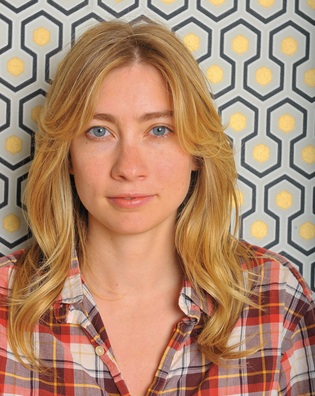 loading
loading
Where They Are NowShowrunnerBehind the scenes on a hit sitcom.  WireimageView full imageScreenwriter Elizabeth Meriwether ’04 had a number-one box-office hit in 2011 with No Strings Attached. More recently, her Fox television series New Girl—a situation comedy about a young schoolteacher (Zooey Deschanel) who moves in with three male roommates—has become a breakout hit. Meriwether is New Girl’s creator, executive producer, and, in Hollywood parlance, one of its three “showrunners”: the people responsible for the show’s daily operation. Y: It’s midseason, and you’re running a hit show. What is your life like right now? I read somewhere that you sleep in the office. M: Yeah, when we’re shooting. You’re shooting all day and then you have to do the rewrites at night. It’s a question of, do I take the 20 minutes to drive home at 3 in the morning and then turn back around immediately at 6 in the morning? I’d rather sleep for those 40 minutes. It’s a brutal schedule. But it’s a good problem to have. Y: How much time do you spend in the writers room versus running the show? M: I don’t actually get to be in the writers room that often. I’ll run in and they’ll tell me what they’re working on and I’ll give them feedback on it. I’m bouncing around from set to the editing room to meetings to me just by myself rewriting—and by bouncing I mean walking in a really tired way. Y: What for you is personal about New Girl? M: The show feels like people I know. It’s my life, it’s my friends. That’s really important with TV, because you have so many episodes to write, and you have to be writing from a real place. There’s just too much work to do; you can’t fake it for very long. Y: How has it been, as a writer, to stay with one set of characters for such a long time? M: One of the best things about television is that it’s like a really long novel. You’re investing years into these people, and these tiny moments in their lives become stories. That is what’s fun about sitcoms—those weird, idiosyncratic blips in your life. It’s not a scene from Lincoln, it’s a moment when you couldn’t get your shoe on. Y: Early in its run, the show took some flak from people who criticized the main character, Jess, as being too girly and not enough of a strong, modern woman. You ended up writing an episode where another female character makes that same critique of Jess, and she has to respond. What made you decide to do that? M: It seemed like an interesting thing for her character. I was like, That’s a good story, that’s a good conflict. So I gravitated towards it. Y: Did that criticism feel personal? M: It was more surprising. You go from being someone who’s writing alone in your room to someone who’s commenting on women everywhere, and I didn’t mean to do that. I’m just trying to create a funny show. And I have also spent my life trying to create interesting roles for women, so there was part of me that got a little bit defensive. Most of the days, I’m just trying to make something funny or make a story make sense. I’m not thinking about the larger feminist agenda. I’m just writing fart jokes.
The comment period has expired.
|
|